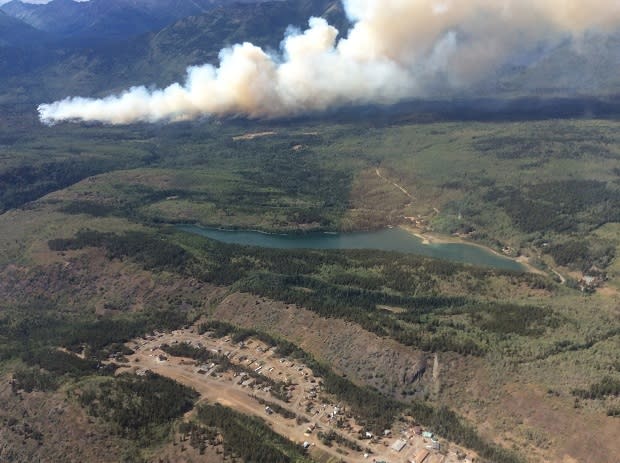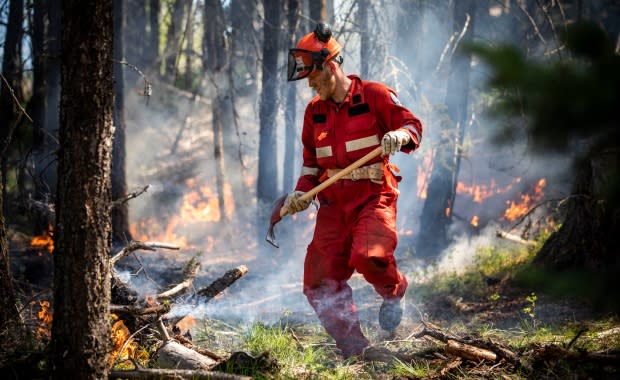All quiet on the northwest front: B.C. closes 150-person fire camp near Dease Lake
Technology is replacing firefighting crews at B.C.'s only current wildfire of note.
Crews had been fighting six holdover fires sparked from last year's Alkali Lake fire near Telegraph Creek, almost 2,000 km north of Vancouver.
All six fires ignited from smouldering embers that burned through the snowy winter, buried as deep as three metres underground.
This spring, firefighters had to fly in to the remote, roadless area to keep the fires under control.

Now, cooler temperatures and rain have improved conditions.
Rain and lower temperatures downgrade fire risk
And although the fires are not considered extinguished, there are few signs of fire activity, said Carolyn Bartos, fire information officer with the Northwest Fire Centre.
"It is a nice feeling, especially for the crews," Bartos said, as the firefighters departed.
Officials will monitor the situation from a distance with a special camera trained on the fire zone.
Camera will keep an eye on Alkali Lake fire zone
Bartos said the camera, overlooking the holdover fires, will send back four pictures a day.

"This allows for continuous monitoring, especially on holdover fires that are burning so far underground, but have no road access. So it just gives us a way to look at the fires without having to send actual manpower in on a flight."
The camera is a long-range, solar-powered, weather-proof camera that takes wide-angled photos at set intervals and emails the photos to B.C. Wildfire Service staff using a satellite connection. It's sort of like a traffic camera, said Bartos, except it can be set up in remote locations to monitor fires. It also provides temperature and precipitation information.
Special firefighting camp demobilized
Fire conditions in the far northwest of B.C. have also improved enough that 150 firefighters in a special camp have all been sent home.
The camp was set up at the end of May, "to allow for quicker response times to new fire starts," according to the B.C. Wildfire Service. At the time, there were concerns about drought and extreme fire conditions.

Bartos said the camp was slowly demobilized "due to a lack of fire events," with the final crews departing Saturday. The facilities for sleeping, catering, and showers have been dismantled.
Quiet ... but on alert
Several small initial attack crews remain.
"Ìt is definitely quiet," said Bartos. "But people are on alert."
Bartos said rain has helped moisten the ground, but hasn't touched the "high drought deep below ground."
She said it's too early to forecast what the rest of summer holds.
On Monday, there were 30 active fires in B.C., the vast majority rated "under control."


